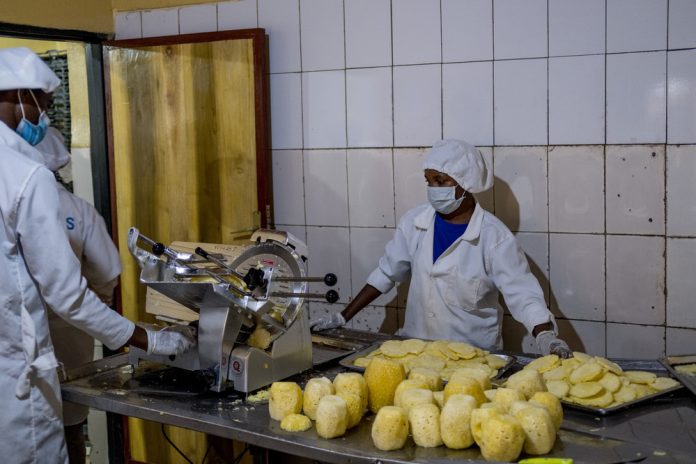Farai Mabeza
Agro-based processor Glytime Foods’ plans to increase capacity have been hamstrung by small working space and lack of access to adequate working capital as the company plans to relocate from Harare to Mutare where its raw material suppliers operate from.
According to the company’s chief executive officer, Lesley Marange, which recently struck a deal to supply the Zambian market with its products Glytime needs to expand to meet new demand with interest coming from Malawi, Democratic Republic of Congo and Namibia.
“We have Malawi, DRC, Namibia all interested but now what’s stopping us from taking our products there is the issue of capacity. At the moment we can only supply our local market and Zambia is coming in. Zambia is big. It can take up to five times what Zimbabwe is taking now,” Marange said.
“We are better off in Mutare, in Manicaland because that’s where most of our raw materials come from. It will help us to integrate more with the farmers from that area. That’s where the most value addition process needs to be done
“We need more factory space because this space is getting small, equipment and working capital. Those are the tree fundamentals. Currently we are getting a working capital from BancABC that is going to assist us but it’s not enough”.
Apparently financial institutions are reluctant to lend huge sums to the company because of the management’s relatively young age with the chief executive as the oldest member at 31.
“They say our age is a risk. So they said they would give us money bit by bit whilst assessing how we conduct ourselves. But if we managed to do this using savings then do we have the capabilities of doing more.”
Zimtrade chief executive officer, Allan Majuru, whose organisation assisted Glytime move into the export market said young businesses needed training.
“We do training, we have a programme that is targeting youths called Eagle’s Nest and we are also doing export promotion where we identify external buyers like what we did with Glytime. We bring in experts that stay at your factory to help you become competitive,” Majuru said.
Zimbabwe is currently facing depressed demand f its export products due to COVI-19 which has seen disposable incomes and demand of products going down, especially those that are not considered essential or basic.


















